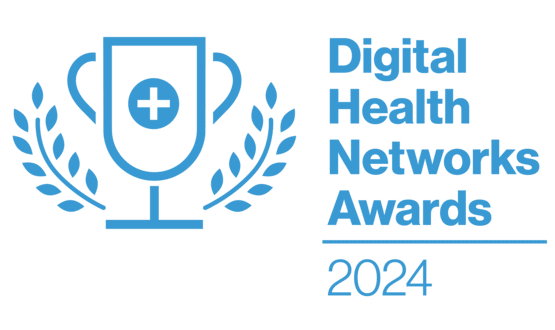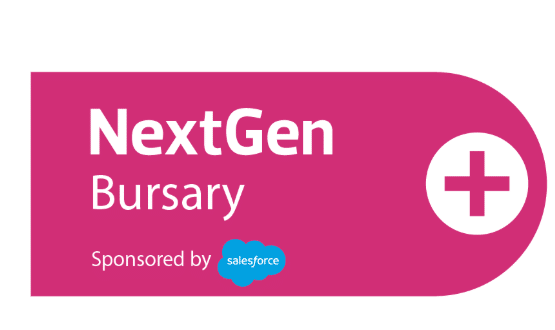EHI interview: Professor Iain Carpenter
- 5 September 2013

The Royal College of Physicians occupies a famous HQ in central London. Designed by Sir Denys Lasdun, the “radically modern building” on the edge of Regent’s Park includes an imposing atrium and panelled pictures of past members on minimalist walls.
Yet when EHI goes to see Professor Iain Carpenter, associate director of the RCP’s health informatics unit, the interview takes place in the basement of a near-by regency house that oozes damp on one of the hottest days of the year.
Still, this means that IT at least has a foothold in an institution that is about to publish a ‘future hospital’ report that will have a big impact on thinking about future models of care, and so on the future organisation of services (indeed, information gets a whole chapter).
And in another way the setting is appropriate. Professor Carpenter wants to talk about the ‘standards for the clinical structure and content of patient records’ that were published by the Health and Social Care Information Centre and the Academy of Royal Medical Colleges in July.
These are very much intended as the foundation for IT and information systems in the NHS. As the document says, if health secretary Jeremy Hunt wants his vision of a ‘paperless NHS by 2018’ to mean a service that can electronically capture information once and then share it electronically many times, the starting point must be to structure clinical information in a standard way.
“For this to be realistically achievable, the standards for structure must reflect the way that patients and clinicians work together to the common goal of best practice and high quality care,” it adds, before providing a long-list of clinical record headings, followed by descriptions of the kind of information that should be recorded under each.
A long time coming
It has taken a long time to get to this point. Invited to reflect on the journey, Professor Carpenter rattles off a long trail of initiatives, starting with work by Swansea’s professor of health service’s research, John Williams.
A gastroenterologist by training, he wanted to use Hospital Episode Statistics data to investigate outcomes, but soon found the data was not up to the job.
Various surveys of medics followed to gather support for the idea of standards for structuring records and the data they contained, which led to work to influence the detailed and summary care records that NHS Connecting for Health was tasked with creating through the National Programme for IT in the NHS.
With CfH support, the RCP launched its first generic record keeping standards some five years ago, and went on to gather support for them from other medical and patient groups.
“Everybody agreed: the psychiatrists said ‘we do things a bit differently, but it’s ok’; and the Academy [of Medical Royal Colleges] signed it off. It was astonishing,” says Professor Carpenter, before acknowledging that after that “bit of a hiatus” set in.
The “bureaucracy” of the national programme made it difficult to get the standards adopted by projects and built into electronic systems; and, of course, the programme itself started to buckle under the weight of non-delivery and political pressure.
In the end, a new multi-disciplinary group was created in the form of the Professional Records Standards Body that was launched at a joint RCP / CCIO Leaders Network event in April. Professor Carpenter, who chairs the new body, gets back into rattling mode as he outlines the many initiatives that it is involved with.
One is work with the Health and Social Care Information Centre to create a revised technical document architecture that should be out by October. This will set out how to translate the record standards into electronic systems, while also addressing messaging and coding.
“All healthcare systems have these issues, so we have found this has huge resonance, not just in the UK but around the world, because it fixes a problem that they have, and does it in a way that has clinicians properly involved,” Professor Carpenter enthuses.
Another interesting project is underway with the National Institute for Health and Care Excellence (NICE), which is looking to link its guidance with the clinical record keeping standards, “so you can say where the data elements of the guidance should go in the records” which, eventually, would support best-practice driven care.
Snakes and ladders on the way ahead
Professor Carpenter also sees several reasons for optimism when it comes to getting the record keeping standards adopted nationally and embedded into systems and clinical practice.
One is that pledge of Hunt’s, and another is that, with the end of NPfIT, trusts are going out to tender for new systems in anyway. “We are talking to systems suppliers and saying ‘hey, guys, you need to be interested in this, because it is standards based and future proofed’ and trusts will be able to see that and go ‘great, we can buy that, then’.”
Then, there is the ‘Safer Hospitals, Safer Wards Technology Fund’, which had just closed its first round of bids for £260m of funding for NHS Number, e-prescribing, scheduling, and information sharing projects at the time of the interview, and which was boosted by another £240m of central money this week.
Professor Carpenter says the PRSB is working hard to persuade NHS England that tech fund projects “include standards” and that it has written to Paul Rice, the head of technology strategy, “to say ‘we can help to sift these bids’” and provide advice for trusts on how to implement the projects that go forward.
On the other hand, he admits there are potential risks on all fronts. Hunt’s pledge might encourage trusts to invest in document scanning and mailing, for example. Trusts might not insist that new systems meet standards and instead “look to suppliers who say ‘you must do it this way or no way’ even if that is not their way’.”
And, while the tech fund is focusing on one set of projects, NHS England is also consulting on a new HES dataset, to feed into the broader care.data programme. Geraint Lewis, its chief data officer, has admitted that few trusts could collect the new data set at the moment, and that many trusts will need to invest in new systems to do this in the future.
While stressing that he “does not want to be seen as negative” about the initiative, Professor Carpenter is clearly worried about it.
Put simply (and in terms he might not use) he doesn’t want to see further investment in systems from which information has to be extracted and coded for export to HES, and then subjected to various statistical kludges before it can be analysed and published.
“We have sent the consultation to everybody we can think of,” he says. “The RCP and the PRSB will be responding. We just hope that we can steer an initiative that is good in principle in a direction that is deliverable.”
Shooting ducks
On balance, Professor Carpenter argues that the “ducks are lining up” for the record keeping standards to get traction.
Asked which duck he might shoot first, he laughs and makes a gun tracking movement, before suggesting that it would be a good idea for all the organisations concerned to pick one, relatively simple thing to do that would make a big difference, do it, and then do another one.
As an example, he says “hips” and whether people who have hip replacements are able to walk when they leave hospital. “’Not walking’ is one item of the discharge summary,” he says.
“So if we record that in a standard way, we can see immediately those hospitals where hip operations are delayed and people do not walk because they have been sitting for so long, and those hospitals that operate immediately and have great physio and get people mobile again.
“That would be a great benefit, not just for patients but for society, because it would mean fewer people having to worry about looking after granny.” Needless to say, Professor Carpenter has plenty of ideas for the next ‘ducks’ – medications, reason for re-admission – but he needs to dash off to his next meeting.
As he goes, he admits there is “a big difference” between his ideas and those of Lewis and his boss Tim Kelsey, NHS England’s director of patients and information.
Where he wants to see record keeping standards adopted that would generate, directly, the data needed for the “hips” and other projects, they dream of creating, manipulating and publishing huge data-sets for mega but unspecified changes.
“One is a visionary epidemiologist and one is a journalist,” he says, cheerfully. “They do not see the practical steps that need to be taken to get there.”




